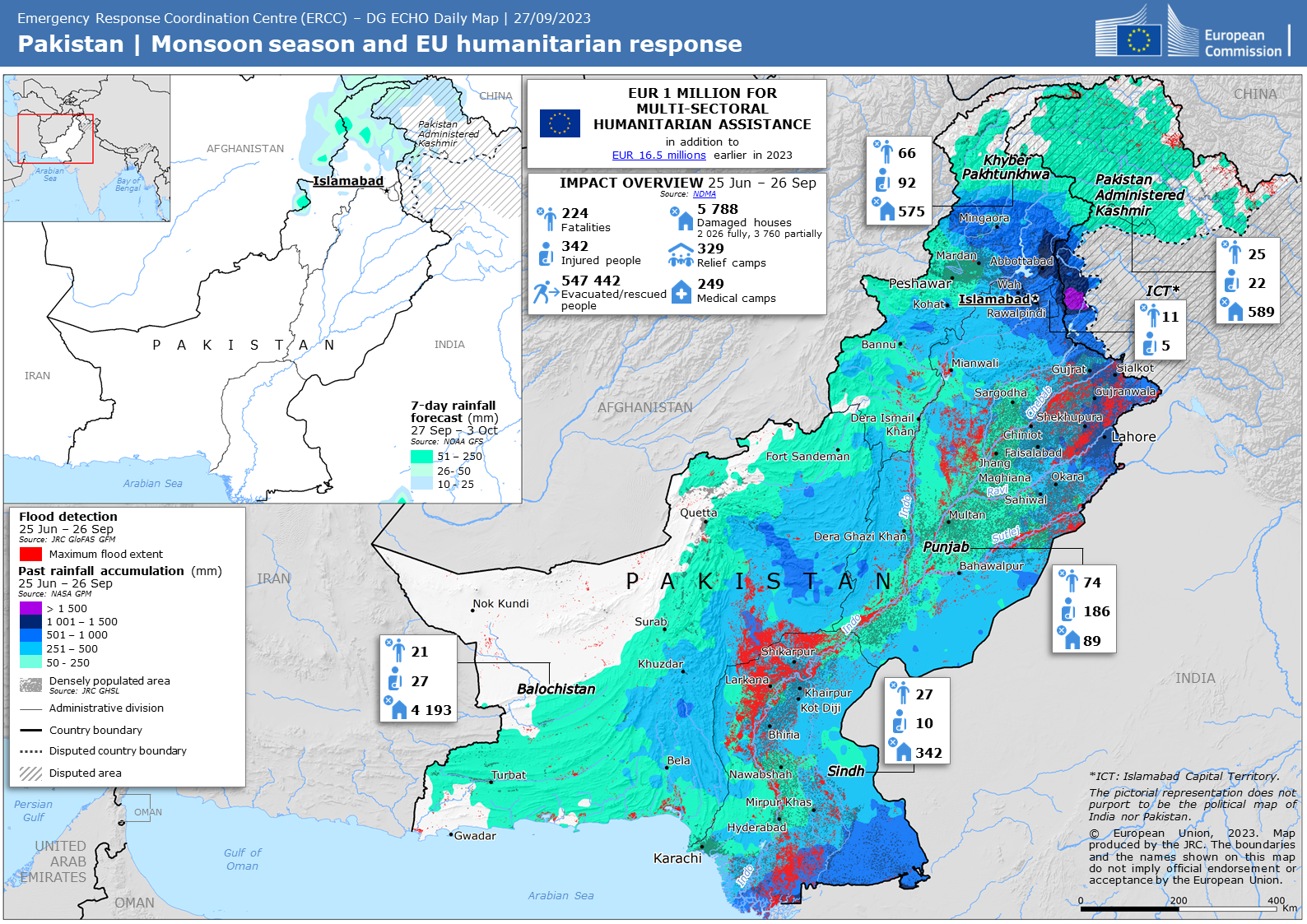The European Crisis Management Laboratory (ECML) gathers a broad set of projects focused on early-warning systems and crisis impact assessment. Scientists, GIS and ICT experts help quantify, qualify and anticipate current and future risks.
What is the European Crisis Management Laboratory?
The European Crisis Management Laboratory is a central point for the creation, testing, and application of ICT solutions designed for effective crisis management. It is instrumental in merging devices, applications, and data to assist in evaluating threats, improving situational awareness, and promoting cooperative decision-making.
The lab extends its training platform to the European Commission, EU Member States, and other crisis management entities, aiming to strengthen the use and confidence in using science and technology to enhance crisis responses to different types of emergencies such as security issues, natural and man-made hazards or health crises.
One important part of ECML's work is making information easier to read and understand using visual tools, especially on large screens. When emergencies happen in real time, the lab turns into a central place where advanced software is used to analyse complex situations, giving disaster risk management actors a clear picture of what is happening.
Are you curious on how the ECML looks like? Take the virtual tour!
Science to support disaster risk management
The European Commission's European Crisis Management Lab is renowned for its science advisory services, offering in-depth analyses of disastrous events, scenario building, and anticipatory analyses. It has been instrumental in evaluating and responding to various crises, such as earthquakes and potential dam breaches. Organisations like DG ECHO, DG HERA, EEAS, EU INTCEN, FPI, and UN OCHA frequently rely on ECML’s insightful analyses.
As a research, development, and test facility, the European Crisis Management Lab is at the forefront of creating ICT solutions that integrate projects, data, tools, and methods to bolster crisis management efforts. The Global Disaster and Alert Coordination System (GDACS) stands as ECML’s primary operational tool, offering real-time access to web-based disaster information and coordination tools.
The laboratory - located at the Joint Research Centre (JRC) in Ispra, Italy - is home to a diverse team of experts, including hydrologists, meteorologists, and remote sensing specialists.While there is a dedicated team working at this laboratory, other experts from the Joint Research Centre also use it often - namely those working at the Disaster Risk Management Knowledge Centre (DRMKC) and the Copernicus Emergency Management Service. Together, all these teams facilitate information and knowledge exchanges and enhance synergies between science, operational activities, and policy needs.
Producing emergency maps that improve situational awareness
The European Crisis Management Laboratory stands as a pivotal centre where technology, expertise, and collaborative efforts converge to enhance crisis management. It integrates projects, data, tools, and methods to foster a strong alliance with EU crisis rooms, research entities, and international and regional early warning services.
Collaborations at the European Crisis Management Lab
ECML’s collaboration values extend to various entities, including national authorities and emergency actors. In partnership with DG ECHO's Emergency Response Coordination Centre, the laboratory produces daily maps that offer comprehensive overviews on ongoing events, instrumental in the deployment of support and rescue operations.

A Multi-Hazard Approach
The ECML adopts a multi-hazard approach, collaborating closely with European Commission stakeholders, civil protection, and disaster management teams across Member States. It serves as a hub for refining crisis management practices, where technology is rigorously tested through diverse scenarios to ensure optimal performance during crises.
Operational Readiness
While the laboratory’s staff works during working days, the infrastructure is primed for 24-hour operation. In extreme situations, other European Commission services can use the ECML as a backup to ensure business continuity when their respective crisis rooms are unavailable.
In essence, the ECML embodies a dynamic convergence of technology, collaboration, and expertise, poised to enhance the European Commission’s readiness and response to a spectrum of crises. Every facet of its operation is crafted to ensure that crisis management is not only reactive but also proactive, informed, and efficient.
Training and Development
The laboratory goes beyond being a crisis response centre; it is also a training ground. It provides distributed crisis management training within the European Commission, EU Member States, and other organizations involved in crisis management. These sessions are designed to strengthen awareness and confidence in using technological solutions, enhancing the efficiency and effectiveness of crisis response mechanisms.
Technology and Innovation
At the heart of ECML is the integration of cutting-edge technology and research. Visual analytics play a significant role, especially in large video screen environments, enhancing information readability and effectiveness. The laboratory is equipped with a 5 x 2.2m large video wall, video conference systems, phone lines, and other essential tools, ready to spring into action during real-time emergencies. Complex event analyses are conducted using advanced software, offering a comprehensive view of unfolding events and ensuring informed, timely responses.
Contact
- jrc-ecml
 ec [dot] europa [dot] eu
ec [dot] europa [dot] eu
